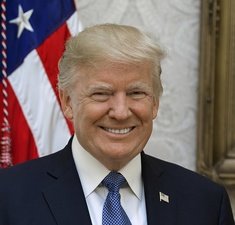|
Question or Term
|
Answer
|
|
The individual whose core support base consisted of white males without a college education
|
Donald Trump
|
|
That which affected the 2016 election in that Protestants and non-Hispanic Catholics favoured Trump (56% and 50%) while Jews, those of other religions, and those with no religion supported Clinton (71%, 62%, and 67%) as did Hispanic Catholics, a Republican improvement on 2012
|
Religion
|
|
Those the rule of thumb of which is that style if often more important than substance (as with Bush's politeness over Gore's arrogance in 2000), verbal gaffes can be costly, good sound bites are helpful (as with Clinton questioning Gore's 'outdated' ideas rather than his age), and they are often more difficult for incumbents
|
Televised Presidential Debates
|
|
That President who defied many rules of thumb in the televised presidential debates such as style over substance, and costly verbal gaffes, to little consequences
|
Donald Trump
|
|
That the weaknesses of which are that small states are over-represented, the winner take-all system distorts results by producing absolute majorities out of pluralities or even popular defeats, it much reduced third party and independent representation, rogue electors can slight distort results, and an absence of an absolute majority can see Congress elect a President and Vice-President from different parties
|
Electoral College
|
|
The swing state which has voted for every winner since 1964
|
Ohio
|
|
An independent candidate who won 45 Electoral College votes on 13.5% of the popular vote due to this support being concentrated in the South
|
George Wallace
|
|
Examples of a national and permanent third party, and a regional and temporary third party
|
Libertarians and American Independent Party
|
|
That group which in a 2015 poll had a 77% favourability rating among conservatives, 56% among moderates, and 33% among liberals
|
National Rifle Association
|
|
A 1968 act that limited trade in and ownership of firearms, causing the NRA to become politically active, lobbying conservative members of Congress for more relaxed gun regulations
|
Gun Control Act
|
|
|
Question or Term
|
Answer
|
|
That in primaries which is most determined by demographics (age, education, etc.), the type of primary, how competitive the race is, and whether the nomination has already been decided by prior primaries in other states
|
Turnout
|
|
A pro-democracy anti-inequality political movement formed in the wake of the financial crisis, helping to inform and educate people as well as reframe the debate on the economy, though to little legislative effect
|
Occupy Movement
|
|
Those types of difference between pressure groups in the UK and USA in the form of the US having many more elections, less party discipline, a more significant judiciary, and a much more decentralised system, with the UK government being much more powerful
|
Structural Differences
|
|
Those two individuals whose campaigns differed in that the former raised more money, mostly from individuals (71%), many being big donors, as well as 28% from Super PACs, whereas the latter raised less, mostly from individuals (42%), many being small donors, and Super PACs, though 23% was raised from his own money
|
Hillary Clinton and Donald Trump
|
|
States in which the outcome of the presidential election is unclear
|
Swing States
|
|
The practice of former members of Congress or the executive taking up well-paid jobs in Washington-based lobbying firms, after their year-long ban on doing so has elapsed, using their expertise and contacts to lobby their previous institution
|
Revolving-Door Syndrome
|
|
The last president not from one of the two major parties, serving from 1850 to 1853 as a Whig
|
Millard Fillmore
|
|
That religious group comprising 2% of the population which often supports the Democrats over the Republicans in addition to those without religious affiliation
|
Jews
|
|
That the problems with which are that it causes exclusionary sub-governments to form, facilitates revolving-door syndrome, and may serve to enhance minority interests above those of the majority
|
Iron Triangle
|
|
That body which pressure groups try to influence by lobbying members and committees, organising constituents to engage in email and phone campaigns, publicising voting records, and endorsing candidates
|
Congress
|
|

